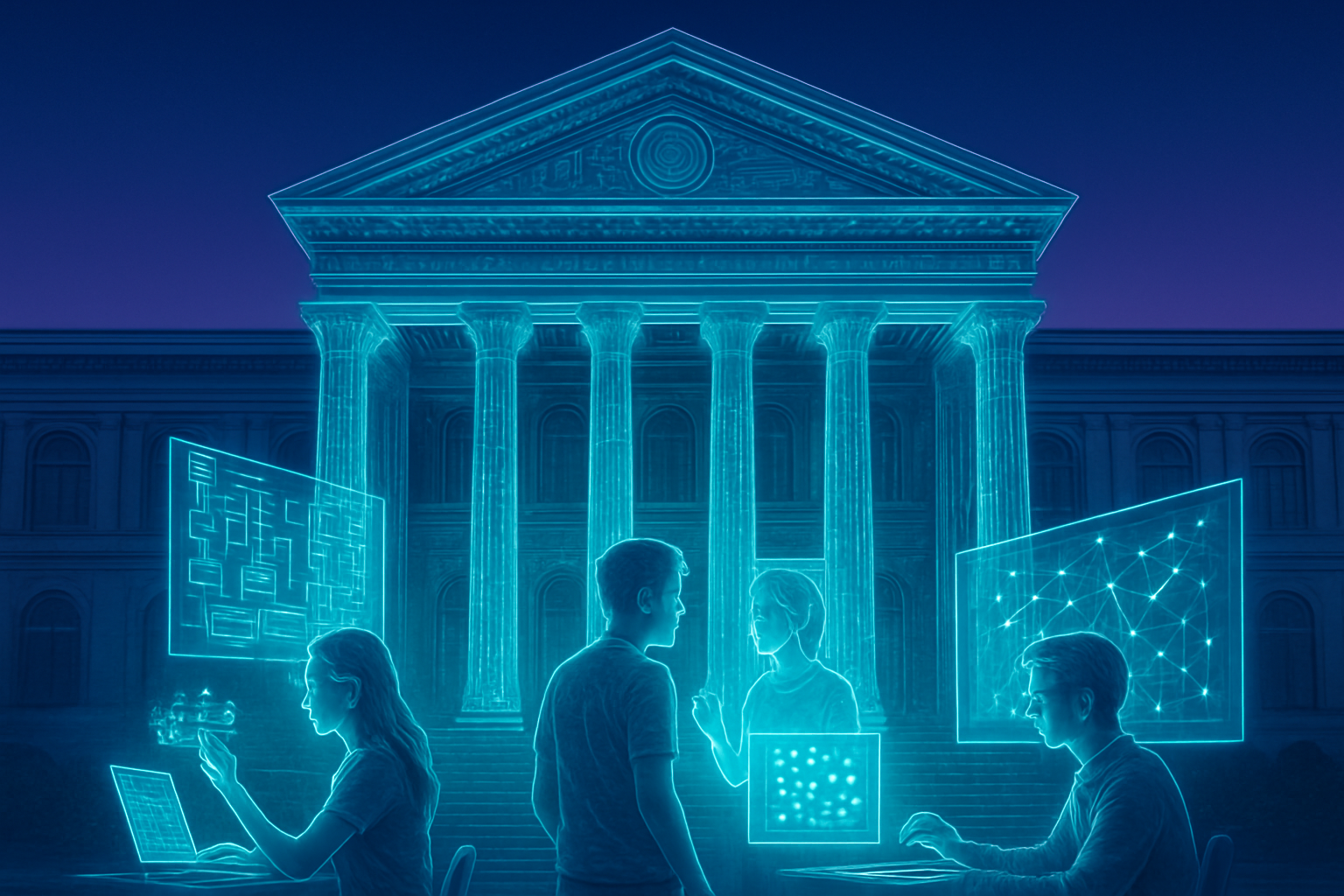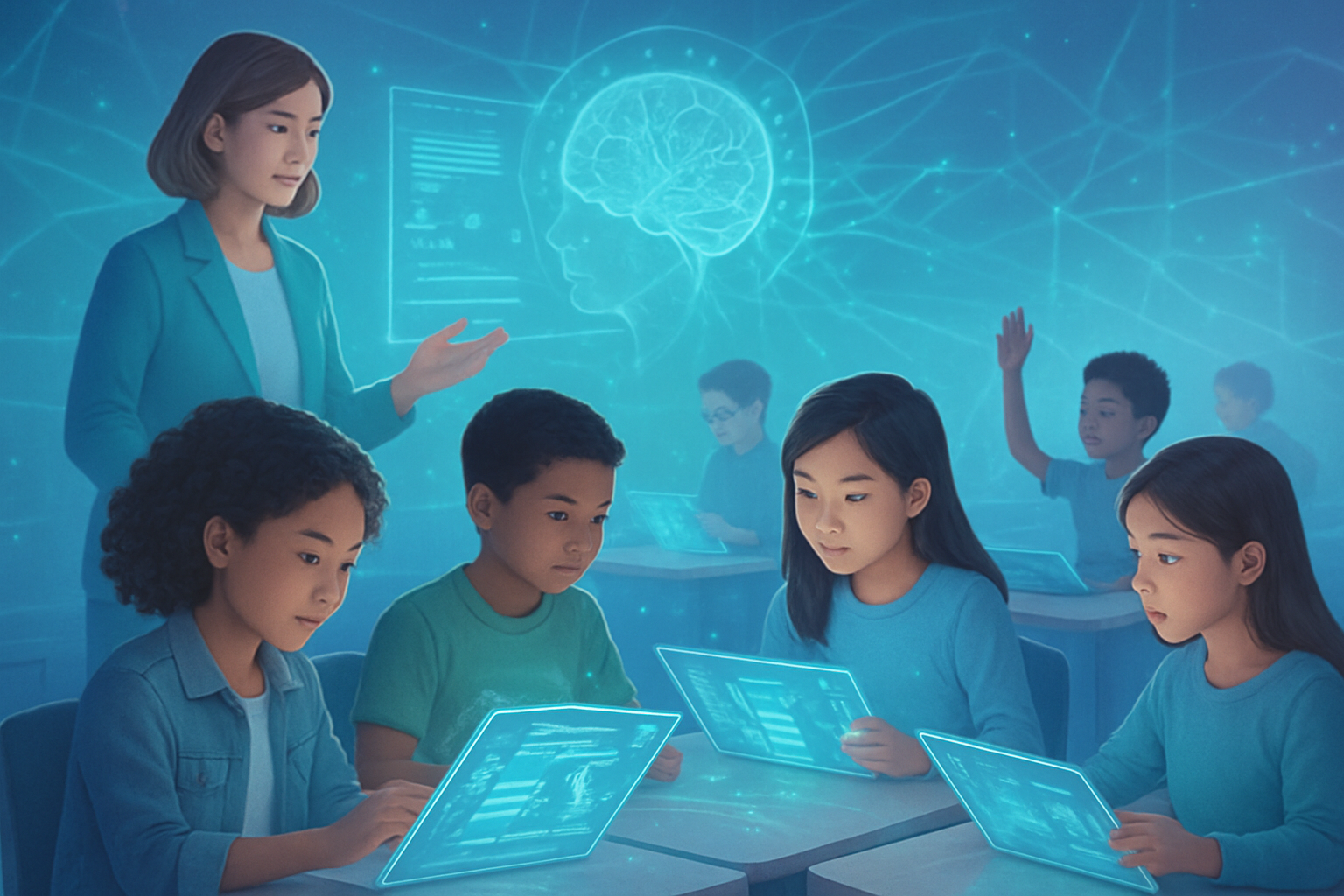As generative artificial intelligence continues to reshape the academic landscape, traditional methods of assessing student knowledge are facing an existential crisis. In a groundbreaking move to restore academic integrity, New York University’s Stern School of Business has successfully replaced traditional written assignments with AI-powered oral exams. This shift, led by Professor Panos Ipeirotis, addresses the growing problem of "AI-assisted cheating"—where students submit polished, LLM-generated essays that mask a lack of fundamental understanding—by forcing students to defend their work in real-time before a panel of sophisticated AI models.
The initiative, colloquially dubbed the "42-cent exam" due to its remarkably low operational cost, represents a pivotal moment in higher education. By leveraging a "council" of leading AI models to conduct and grade 25-minute oral defenses, NYU is demonstrating that personalized, high-stakes assessment can be scaled to large cohorts without the prohibitive labor costs of human examiners. This development marks a definitive transition from the era of "AI detection" to one of "authentic verification," setting a new standard for how universities might operate in a post-essay world.
The Technical Architecture of the 42-Cent Exam
The technical architecture of the NYU oral exam is a sophisticated orchestration of multiple AI technologies. To conduct the exams, Professor Ipeirotis utilized ElevenLabs, a leader in conversational AI, to provide a low-latency, natural-sounding voice interface. This allowed students to engage in a fluid, 25-minute dialogue with an AI agent that felt less like a chatbot and more like a human interlocutor. The exam was structured into two distinct phases: a "Project Defense," where the AI probed specific decisions made in the student's final project, and a "Case Study" phase, requiring the student to apply course concepts to a random, unscripted scenario.
To ensure fairness and accuracy in grading, the system employed a "council" of three distinct Large Language Models (LLMs). The primary assessment was handled by Claude, developed by Anthropic (backed by Amazon.com Inc., NASDAQ: AMZN), while Alphabet Inc. (NASDAQ: GOOGL)’s Gemini and OpenAI’s GPT-4o—supported by Microsoft Corp. (NASDAQ: MSFT)—provided secondary analysis. By having three independent models review the transcripts and justify their scores with verbatim quotes, the system significantly reduced the risk of "hallucinations" or individual model bias.
This approach differs fundamentally from previous automated grading systems, which often relied on static rubrics or keyword matching. The NYU system is dynamic; it "reads" the student's specific project beforehand and tailors its questioning to the individual’s claims. The cost efficiency is equally transformative: while a human-led oral exam for a class of 36 would cost roughly $750 in teaching assistant wages, the AI-driven version cost just $15.00 total—approximately 42 cents per student. This radical reduction in overhead makes the "viva voce" (oral exam) format viable for undergraduate courses with hundreds of students for the first time in modern history.
Disruption in the EdTech and AI Markets
The success of the NYU pilot has immediate implications for the broader technology sector, particularly for companies specializing in AI infrastructure and educational tools. Anthropic and Google stand out as primary beneficiaries, as their models demonstrated high reliability in the "grading council" roles. As more institutions adopt this "multi-model" verification approach, demand for API access to top-tier LLMs is expected to surge, further solidifying the market positions of the "Big Three" AI labs.
Conversely, this development poses a significant threat to the traditional proctoring and plagiarism-detection industry. Companies that have historically relied on "lockdown browsers" or AI-detection software—tools that have proven increasingly fallible against sophisticated prompt engineering—may find their business models obsolete. If the "42-cent oral exam" becomes the gold standard, the market will likely shift toward "Verification-as-a-Service" platforms. Startups that can bundle voice synthesis, multi-model grading, and LMS integration into a seamless package are poised to disrupt incumbents like Turnitin or ProctorU.
Furthermore, the integration of ElevenLabs’ voice technology highlights a growing niche for high-fidelity conversational AI in professional settings. As universities move away from written text, the demand for AI that can handle nuance, tone, and real-time interruption will drive further innovation in the "Voice-AI" space. This shift also creates a strategic advantage for cloud providers who can offer the lowest latency for these real-time interactions, potentially sparking a new "speed race" among AWS, Google Cloud, and Azure.
The "Oral Assessment Renaissance" and Its Wider Significance
The move toward AI oral exams is part of a broader "oral assessment renaissance" taking hold across global higher education in 2026. Institutions like Georgia Tech and King’s College London are experimenting with similar "Socratic" AI tutors and "AutoViva" plugins. This trend highlights a fundamental shift in pedagogy: the "McKinsey Memo" problem—where students produce professional-grade documents without understanding the underlying logic—has forced educators to prioritize verbal reasoning and "AI literacy."
However, the transition is not without its challenges. Initial data from the NYU experiment revealed that 83% of students found the AI oral exam more stressful than traditional written tests. This "stress gap" raises concerns about equity for introverted students or non-native speakers. Despite the anxiety, 70% of students acknowledged that the format was a more valid measure of their actual understanding. This suggests that while the "exam of the future" may be more grueling, it is also perceived as more "cheat-proof," restoring a level of trust in academic credentials that has been eroded by the ubiquity of ChatGPT.
Moreover, the data generated by these exams is proving invaluable for faculty. By analyzing the "council" of AI grades, Professor Ipeirotis discovered specific topics where the entire class struggled—such as A/B testing—allowing him to identify gaps in his own teaching. This creates a feedback loop where AI doesn't just assess the student, but also provides a personalized assessment of the curriculum itself, potentially leading to more responsive and effective educational models.
The Road Ahead: Scaling the Socratic AI
Looking toward the 2026-2027 academic year, experts predict that AI-powered oral exams will expand beyond business and computer science into the humanities and social sciences. We are likely to see the emergence of "AI Avatars" that can conduct these exams with even greater emotional intelligence, potentially mitigating some of the student anxiety reported in the NYU pilot. Long-term, these tools could be used not just for final exams, but as "continuous assessment" partners that engage students in weekly 5-minute check-ins to ensure they are keeping pace with course material.
The primary challenge moving forward will be the "human-in-the-loop" requirement. While the AI can conduct the interview and suggest a grade, the final authority must remain with human educators to ensure ethical standards and handle appeals. As these systems scale to thousands of students, the workload for faculty may shift from grading papers to "auditing" AI-flagged oral sessions. The development of standardized "AI Rubrics" and open-source models for academic verification will be critical to ensuring that this technology remains accessible to smaller institutions and doesn't become a luxury reserved for elite universities.
Summary: A Milestone in the AI-Education Synthesis
NYU’s successful implementation of the 42-cent AI oral exam marks a definitive milestone in the history of artificial intelligence. It represents one of the first successful large-scale efforts to use AI not as a tool for generating content, but as a tool for verifying human intellect. By leveraging the combined power of ElevenLabs, Anthropic, Google, and OpenAI, Professor Ipeirotis has provided a blueprint for how academia can survive—and perhaps even thrive—in an era where written words are no longer a reliable proxy for thought.
As we move further into 2026, the "NYU Model" will likely serve as a catalyst for a global overhaul of academic integrity policies. The key takeaway is clear: the written essay, a staple of education for centuries, is being replaced by a more dynamic, conversational, and personalized form of assessment. While the transition may be stressful for students and logistically complex for administrators, the promise of a more authentic and cost-effective education system is a powerful incentive. In the coming months, watch for other major universities to announce their own "oral verification" pilots as the 42-cent exam becomes the new benchmark for academic excellence.
This content is intended for informational purposes only and represents analysis of current AI developments.
TokenRing AI delivers enterprise-grade solutions for multi-agent AI workflow orchestration, AI-powered development tools, and seamless remote collaboration platforms.
For more information, visit https://www.tokenring.ai/.








